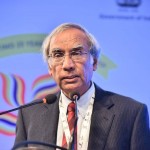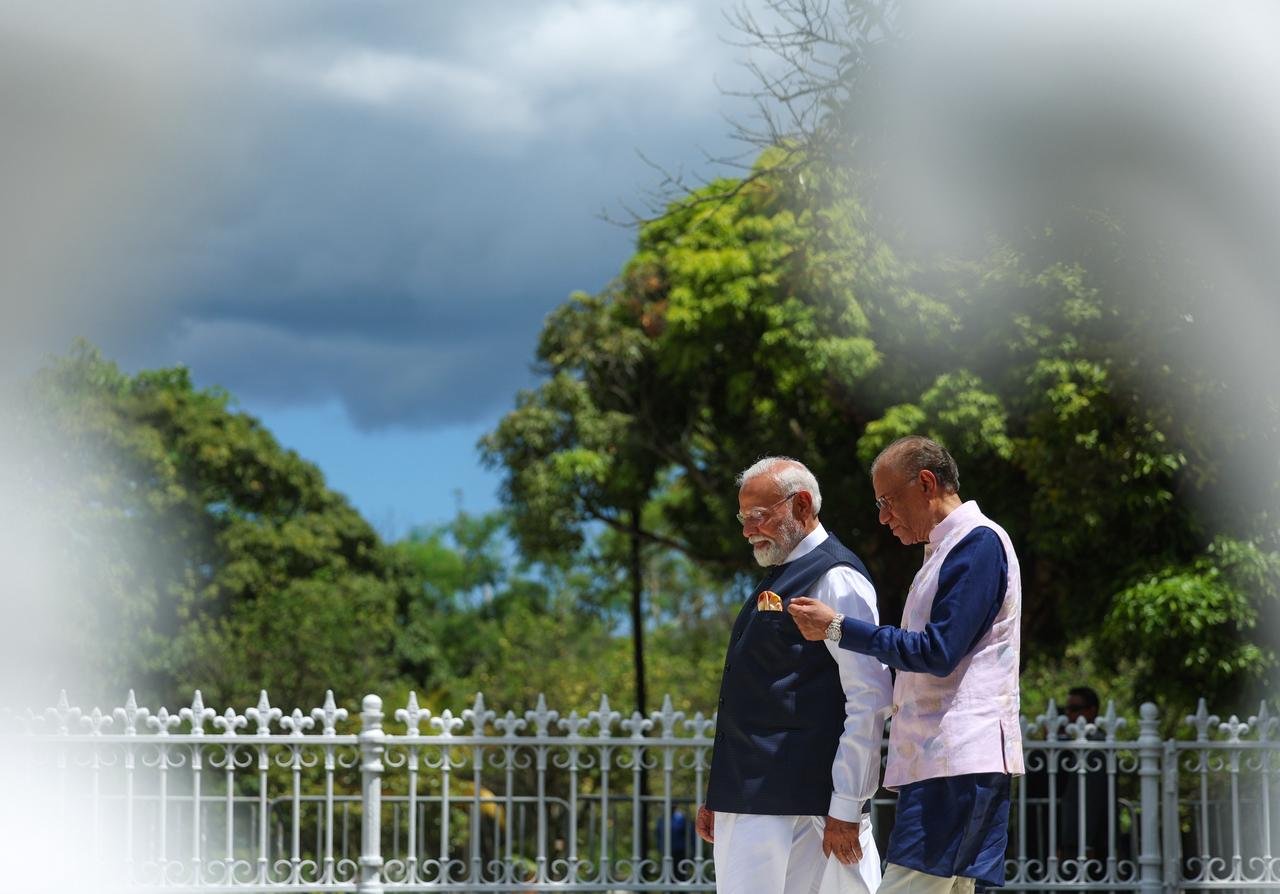 Courtesy: X
Courtesy: X
Prime Minister Narendra Modi’s state visit to Mauritius reinforced the strategic partnership between the two nations amid growing geopolitical competition in the Indian Ocean. The visit introduced the Mahasagar vision for regional security and growth while advancing cooperation in trade, defence, digital infrastructure, and people-to-people ties. With the shared historical, cultural, and economic ties, Mauritius remains pivotal to India’s Indo-Pacific strategy.
 Courtesy: Institute for Global Dialogue
Courtesy: Institute for Global Dialogue
The G20 and South Africa - its presiding nation - will both face a difficult year. The U.S., one of the G20’s most vital members has not yet participated, notable by its absence from two important ministerial meetings. The U.S.’ changed foreign policy stance will be a tough challenge for G20; the Global South members will have to step up and become proactive.
 Courtesy: Gateway House
Courtesy: Gateway House
Japan's growing influence in India’s Northeast and Bay of Bengal region is proving to be a gamechanger, with the potential to transform its economic and geopolitical landscape. With cultural ties and strategic investments, states like Assam and Meghalaya hope to enhance development while fostering a mutually beneficial relationship with Japan. Additionally, the latter could help ensure wider regional stability given the tensions with Bangladesh and Myanmar.
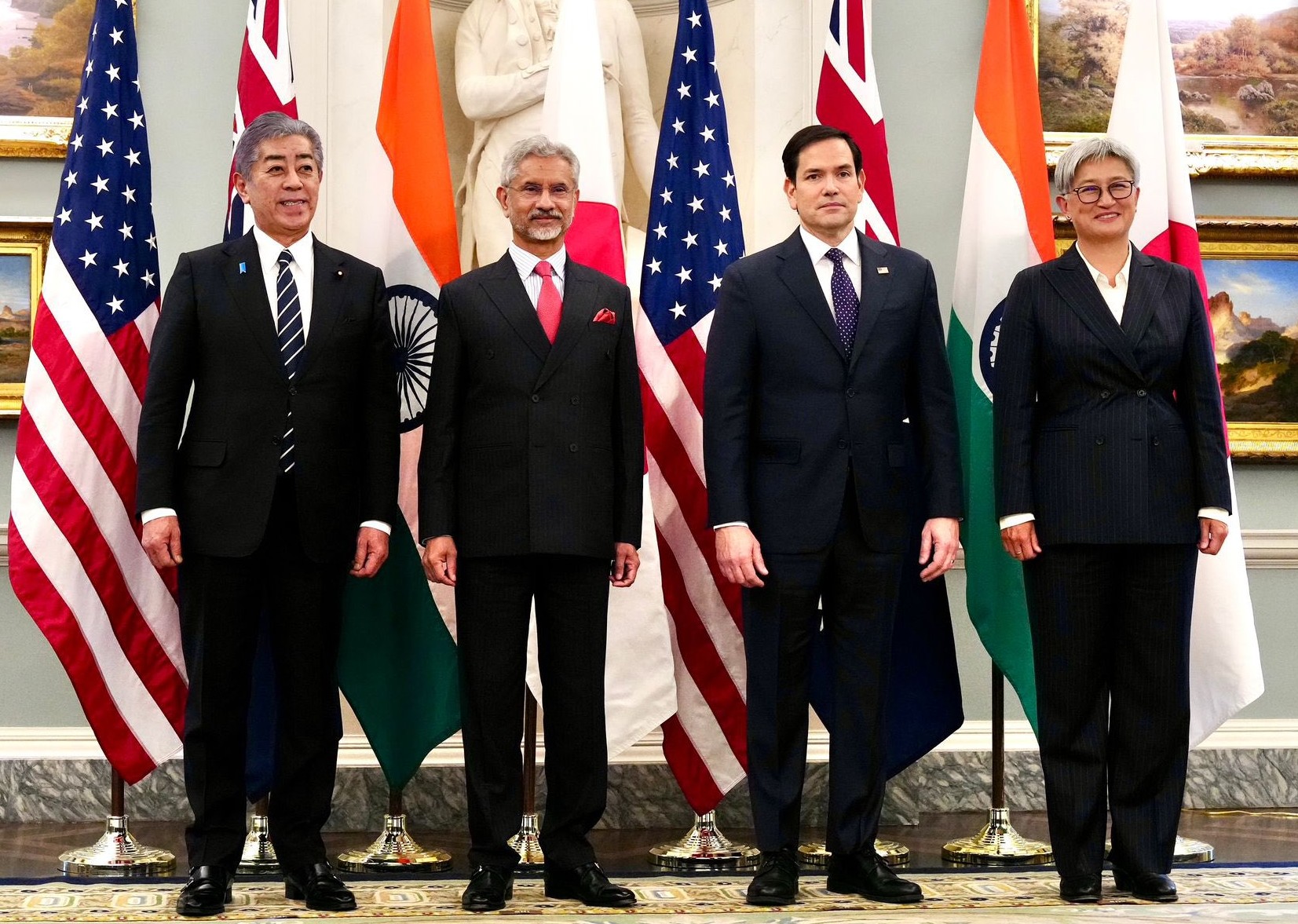 Courtesy: X
Courtesy: X
The first plurilateral meeting attended by new U.S. Secretary of State Marco Rubio was the Quad, a day after assuming office. The meeting reinforced the commitment to the Indo-Pacific but with the change in government, the Quad's trajectory in 2025 remains a question. Part of the answer lies in its past interactions, while the rest depends on how the U.S. and India will approach China.
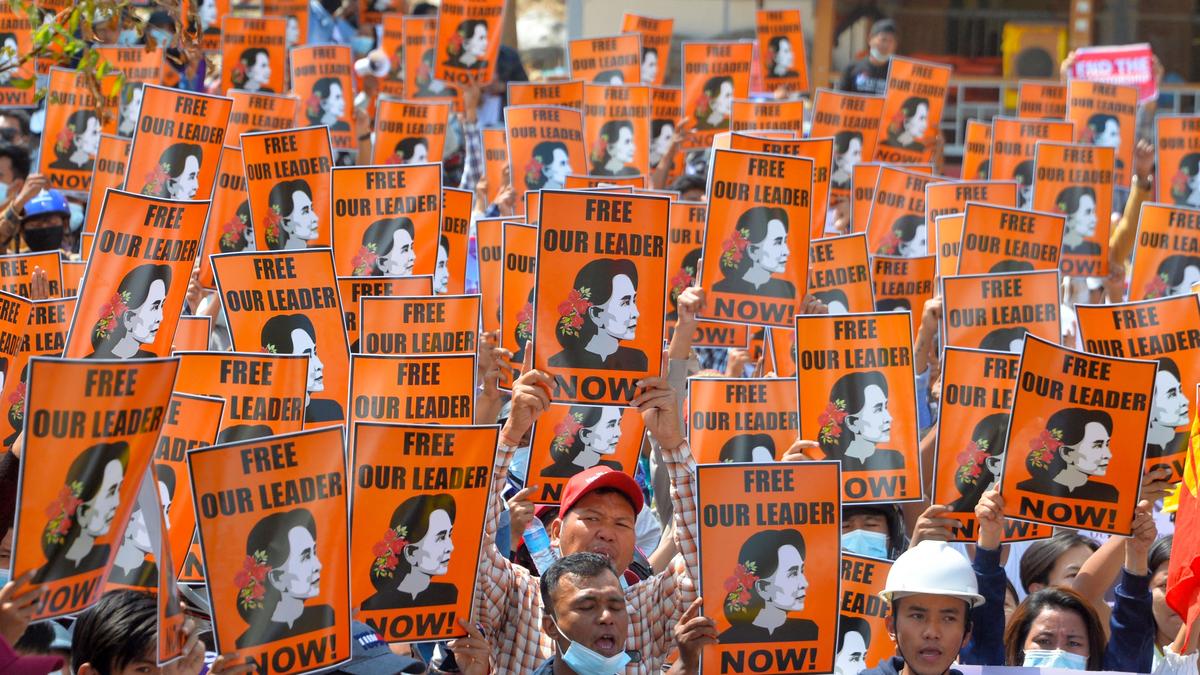 Courtesy: AFP
Courtesy: AFP
February 1 marks four years of the military coup in Myanmar, which plunged the country into a bloody civil war, still on-going. The crisis is deepening, as the struggle between the Junta forces and a fragmented resistance wages on with no resolution in sight. A stalled mediation by ASEAN, and lack of consensus amongst neighbouring countries on how to help, leaves Myanmar’s future uncertain.
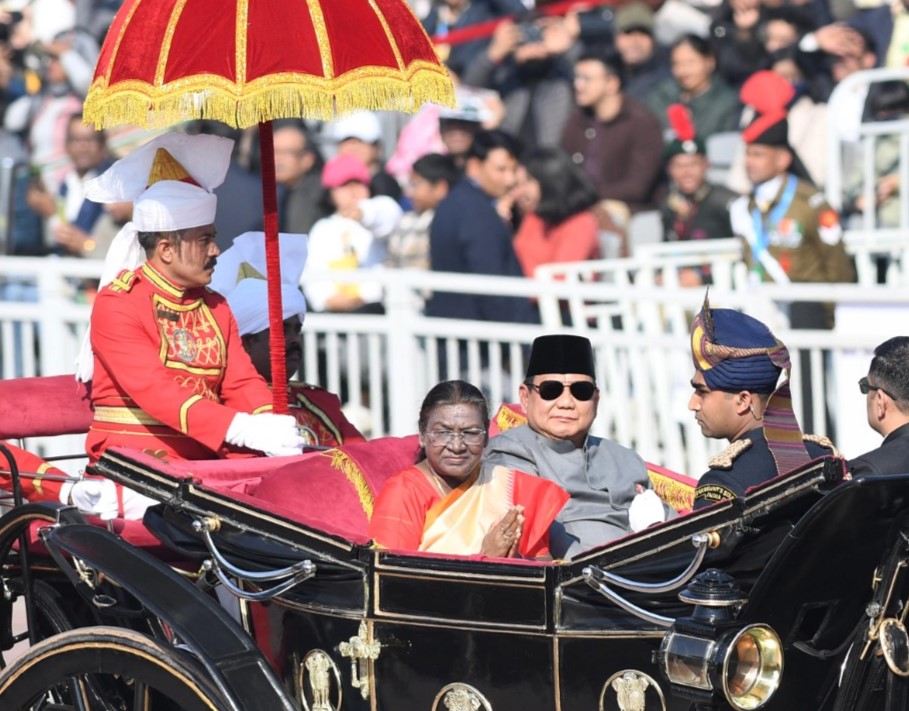 Courtesy: X (@rashtrapatibhvn)
Courtesy: X (@rashtrapatibhvn)
India hosted Indonesian President Prabowo Subianto on a four-day state visit and as chief guest for its 76th Republic Day. The bilateral is now going beyond civilisational commonalities. Tourism, trade and connectivity are central themes, as is defence and maritime security cooperation with India. A robust India-Indonesia partnership can help both nations achieve shared goals in the Indo-Pacific.
 Courtesy: The Diplomat
Courtesy: The Diplomat
Managing ties with the U.S., China, Russia, and those within its South Asian neighbourhood will be India’s key foreign policy priorities in 2025. For India to be a principal player in the region and beyond, it must skillfully weave national security, economic, and diplomacy into its strategic calculations.
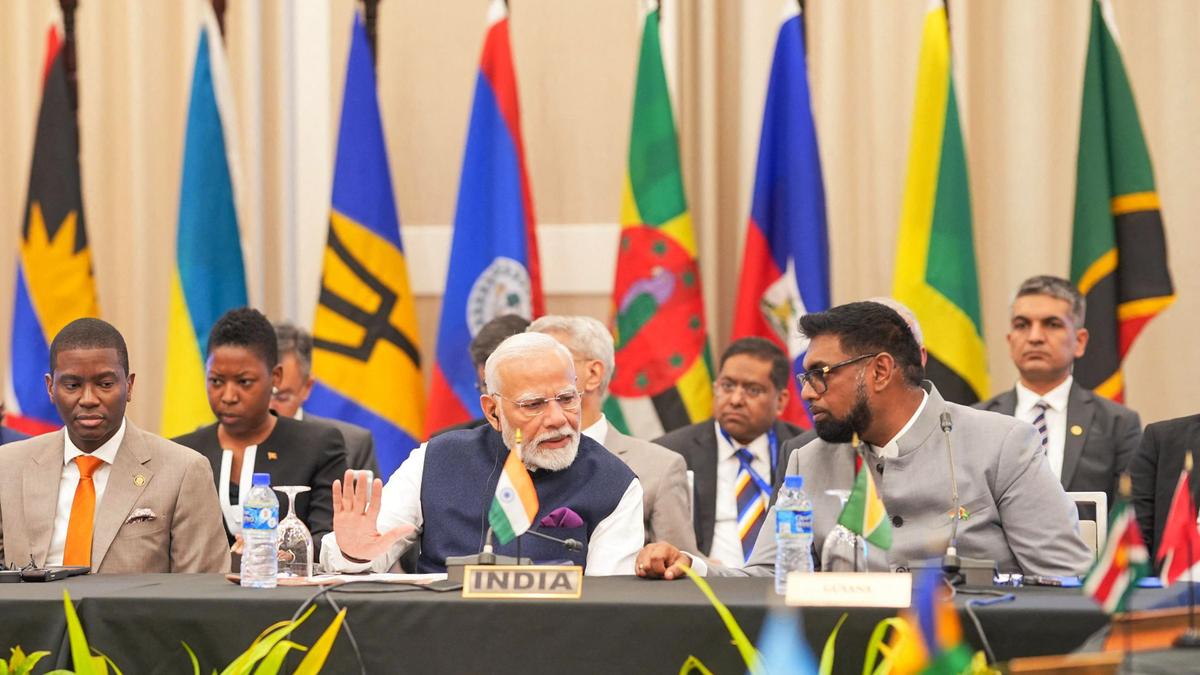 Courtesy: The Hindu
Courtesy: The Hindu
Prime Minister Narendra Modi’s six-day visit to Nigeria, Brazil, and Guyana in November resulted in several bilateral agreements on economic, developmental, energy and technological cooperation. The trip highlighted India’s strategic and diplomatic priorities in Africa, Latin America and the Caribbean and offered the country an opportunity to position itself as a key partner for sustainable development and multilateral cooperation in the Global South.
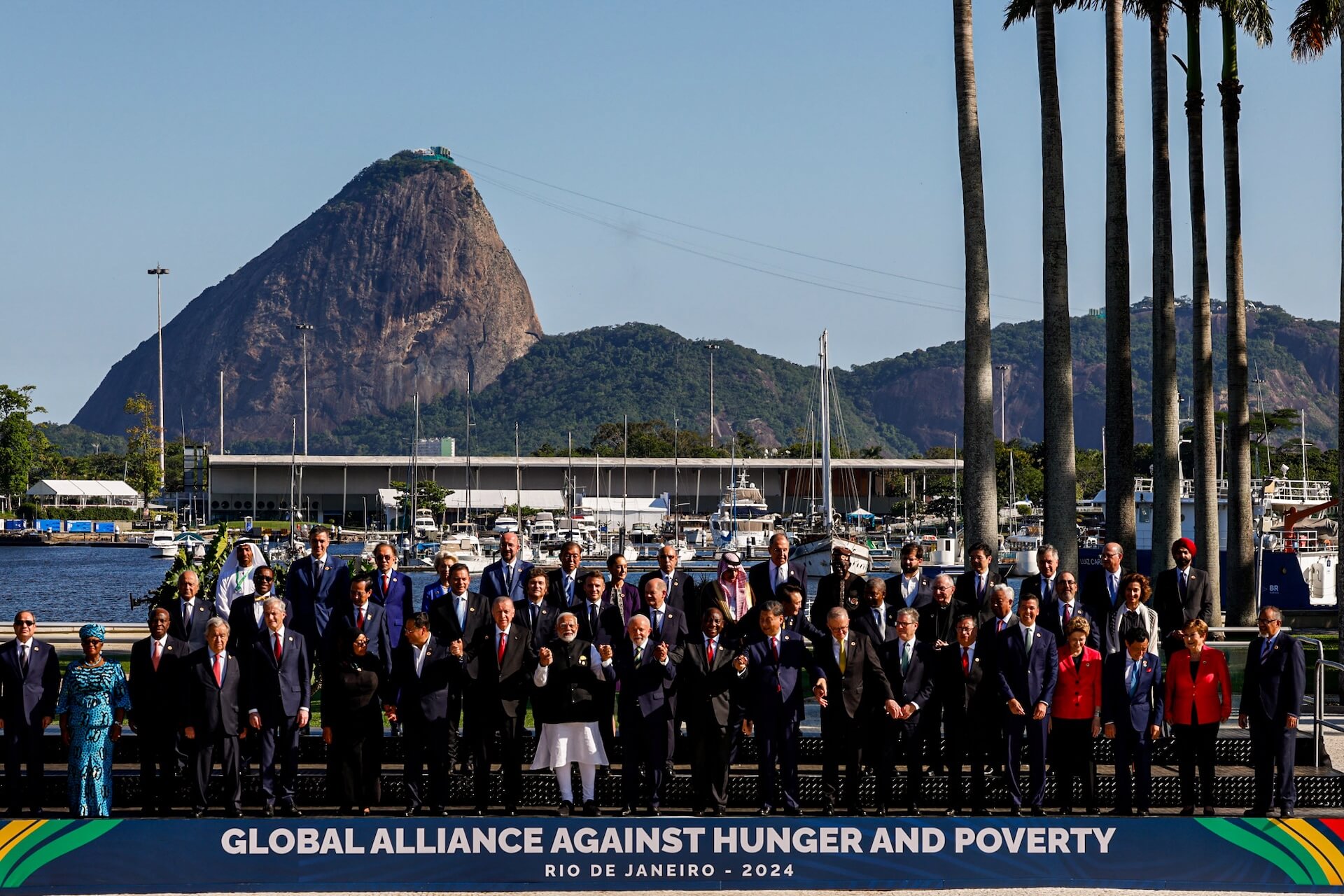 Courtesy:
Courtesy:
The G20 Leaders' Summit, held in Brazil on November 18-19, focused on advancing climate action, addressing hunger and poverty, and global governance reform. Along with welcoming the African Union as a full member, it balanced continuity with innovation and highlighted the forum's role in creating and pushing multilateral solutions to pressing global challenges.
 Courtesy:
Courtesy:
Prime Minister Modi’s state visit to Nigeria on November 16-17 marks the first leg of his transcontinental diplomatic tour and offers a valuable opportunity to advance cooperation with Africa and the Global South. The trip, aimed at deepening cooperation in trade, investment and defence, signaled India’s recognition of Nigeria’s significance as Africa’s regional and continental powerhouse.


